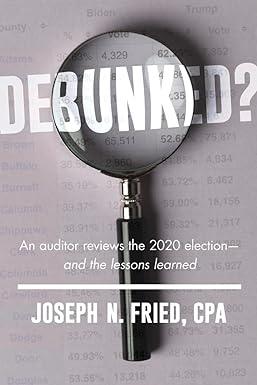Question
Consider the following findings from the article, Recent Tax and Income Trends among High-Income Taxpayers, from the Center on Budget and Policy Priorities: Although high-income
Consider the following findings from the article, "Recent Tax and Income Trends among High-Income Taxpayers," from the Center on Budget and Policy Priorities: Although high-income households paid a larger share of federal taxes in 2003 than in 1990, their after-tax incomes increased much faster over this period than those of any other income group. The CBO data show that from 1990 to 2003the period that the Treasury fact sheet coversthe average after-tax income of the top one percent of the population jumped 35 percent, while the average after-tax income of the middle fifth of the population rose 12 percent. When the 1980s are included, this differential is even larger. It should be noted that a significant part of the increase in the share of taxes that is paid by high-income households simply reflects the large rise in their share of the total income in the nation. The tax burden on high-income households is not high in historical terms. Even though high-income taxpayers pay a significant share of federal taxes, their actual tax burdensthe percentage of income that they pay in federal taxes have declined. According to the CBO data, the top one percent of households paid a slightly smaller share of their income in federal taxes in 2003 than they paid in any year since 1992. The percentage of income that these households paid in federal taxes dropped significantly between 2002 and 2003, as tax cuts from which they benefitsuch as the reduction in the top income tax rates and the cut in capital gains and dividend tax ratestook effect (Center on Budget and Policy Priorities, 2006, para. 56).
Please respond to one of the following:
(a) What do you think? Should high-income taxpayers be held responsible for paying more money in taxes relative to the share that is paid by middle- and low-income taxpayers? Support your position and cite your sources.
(b) Do high-income taxpayers typically advocate for a marginal tax system or a flat tax system? Why?
(c) Proponents of both systems argue that the other system is harmful. Select either the marginal tax system or the flat tax system and make a case that its harmful. Specify who is harmed and how. Give examples.
Step by Step Solution
There are 3 Steps involved in it
Step: 1

Get Instant Access to Expert-Tailored Solutions
See step-by-step solutions with expert insights and AI powered tools for academic success
Step: 2

Step: 3

Ace Your Homework with AI
Get the answers you need in no time with our AI-driven, step-by-step assistance
Get Started


